Connect With Leading Industrial Roofing Contractors in UK
Find Experienced & Reliable Industrial Roofers for Your Industrial Facility With Roofyng.co.uk
Roofyng.co.uk is your trusted source for finding qualified and experienced industrial roofing contractors in the UK. We specialize in connecting businesses and property managers with reputable roofing professionals who have the expertise to handle large-scale, complex industrial roofing projects. Whether you need a new roof installation, repairs, maintenance, or inspections, we've got you covered.
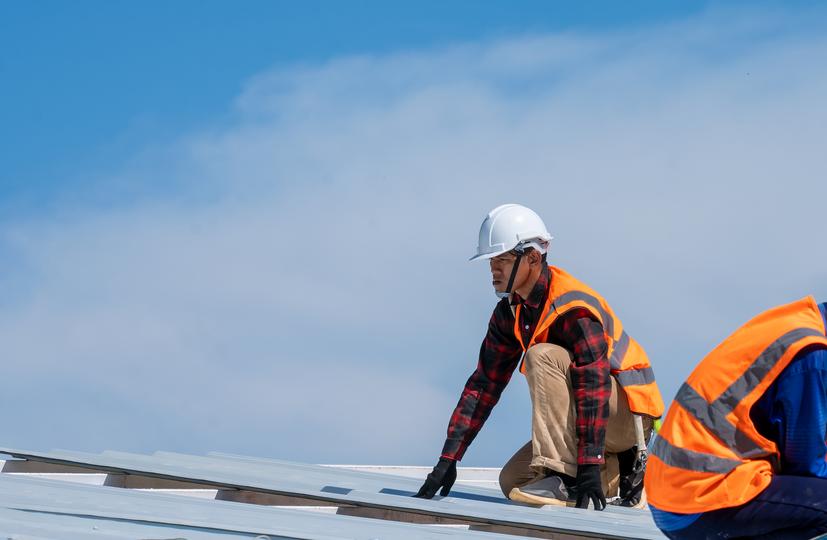
Industrial Roofing Contractors Near Me
Looking for industrial roofing contractors in a specific region? Browse our directory to find qualified professionals across UK.
Connecting You with the Best Industrial Roofing Contractors in UK
Roofyng.co.uk simplifies the process of finding and hiring a qualified industrial roofing contractor. Our platform makes it easy to get connected with trusted professionals who specialize in your specific needs. Here's how it works:

- Submit Your Project Details
- Tell us about your industrial roofing project's requirements, including the building type, roof size, desired materials, and any specific challenges or considerations.
- Get Matched with Qualified Contractors
- We'll connect you with a selection of reputable industrial roofing contractors in your area who have the expertise and experience to handle your project type.
- Review Quotes and Compare Services
- You'll receive detailed quotes and proposals from the matched contractors, allowing you to compare their services, pricing, and experience.
- Choose the Best Contractor for Your Project
- Make an informed decision based on the information provided and select the contractor who best meets your requirements and budget.
Why Choose Roofyng.co.uk for Industrial Roofing Contractors?
The smarter way to find Industrial Roofing Service contractors
Roofyng.co.uk is the leading platform for connecting businesses with trusted and experienced industrial roofing contractors across UK. We understand the unique challenges and demanding requirements of industrial roofing projects, and we're dedicated to helping you find the right contractor for your specific needs. Here's why Roofyng.co.uk should be your first choice: We take the stress out of finding the right roofing companies. Here's how:

- Expertise in Industrial Roofing Systems
- Industrial roofing projects often involve complex designs, specialized materials, and stringent safety regulations. Our directory features vetted contractors with extensive experience in a wide range of industrial roofing systems, including:
- Built-Up Roofing (BUR): A traditional, multi-layered system suitable for flat or low-slope roofs, known for its durability and waterproofing capabilities.
- Modified Bitumen Roofing: A durable and flexible system that's resistant to weathering and UV damage, often used on flat or low-slope roofs.
- Single-Ply Membrane Roofing: A modern, lightweight system that offers excellent waterproofing and energy efficiency, suitable for various roof types.
- Metal Roofing: Durable, long-lasting, and fire-resistant, metal roofing is a popular choice for industrial buildings, available in various styles like standing seam and corrugated.
- Spray Polyurethane Foam (SPF) Roofing: A seamless, spray-applied roofing system that provides excellent insulation, waterproofing, and energy efficiency, often used for flat roofs.
- Commitment to Safety and Compliance
- Industrial roofing projects require strict adherence to safety regulations and industry standards. Our listed contractors prioritize safety and maintain all necessary certifications and insurance coverage to ensure a secure work environment and compliance with local codes. They understand the importance of protecting both workers and property during the project.
- Focus on Durability and Performance
- Industrial roofs are subjected to demanding conditions, from extreme weather to heavy foot traffic and equipment. Our vetted contractors understand these challenges and prioritize durability and long-lasting performance in their work. They use high-quality materials, proven techniques, and meticulous attention to detail to deliver roofing solutions that withstand the rigors of industrial environments.
- Competitive Bidding and Transparent Pricing
- We make it easy to compare bids and get the best value for your investment. Our platform allows you to request free quotes from multiple industrial roofing contractors. You'll receive detailed proposals outlining the scope of work, materials, labor costs, and any additional fees, making it simple to compare and choose the most competitive offer.
- Streamlined Process and Time Savings
- Finding and vetting qualified industrial roofing contractors can be time-consuming. Roofyng.co.uk simplifies this process, saving you valuable time and effort. You submit your project details once, and we connect you with multiple contractors who match your requirements. This allows you to focus on other aspects of your business while we handle the contractor search.
- Dedicated Customer Support
- Our dedicated customer support team is here to assist you at every step of the process. Whether you have questions about our platform, need help finding the right contractor, or have any concerns during the project, our team is available to provide prompt and helpful support.
Need Roofing Services for Your Business?
Find Commercial Roofing Contractors
Roofyng.co.uk also connects you with reliable commercial roofing contractors for projects of all sizes. Find trusted specialists for flat roofs, metal roofs, industrial roofs, green roofs, and single-ply membrane roofs. Our contractors are experienced in working on various commercial buildings, including offices, retail spaces, warehouses, factories, and schools.
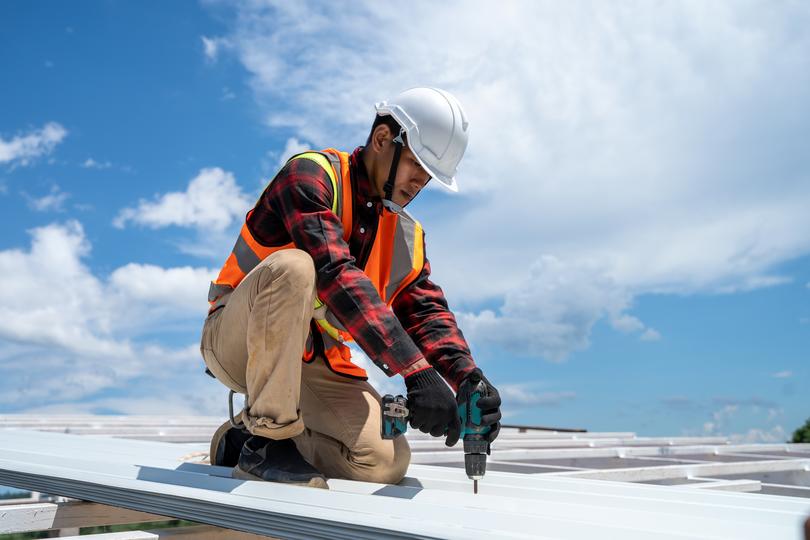
Find trusted roofing companies near you. Get multiple quotes for roof installation, repair, and replacement services.
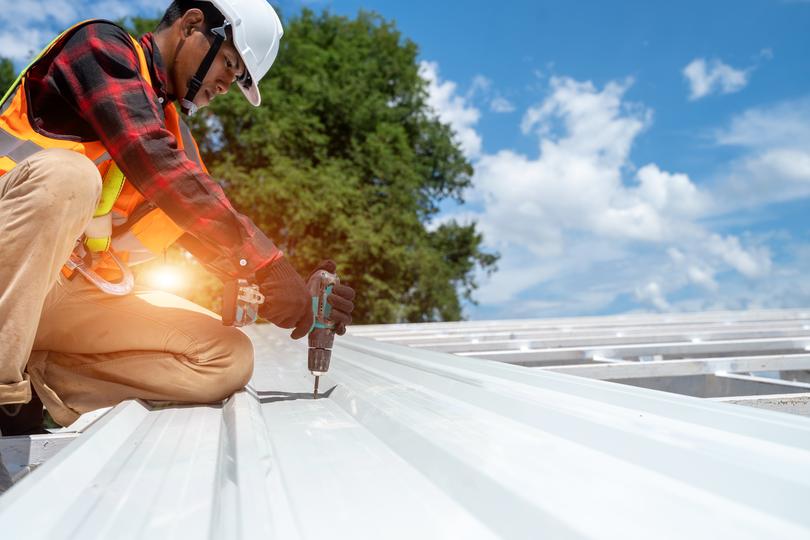
Get a new roof installed by experienced professionals. We offer a variety of roofing materials and styles to suit your needs and budget.
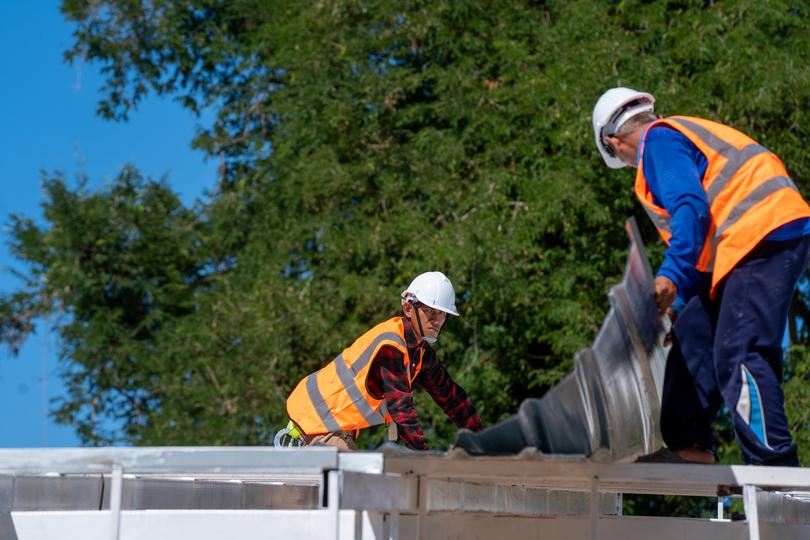
Comprehensive roof repair services for all types of roofs. We fix leaks, damage, and other roofing issues to keep your property protected.

Complete roof replacement services for residential and commercial buildings. We remove your old roof and install a new roof with the material of your choice.

Specialized roofing services for commercial buildings. We handle installation, repair, and replacement for all types of commercial roofs.
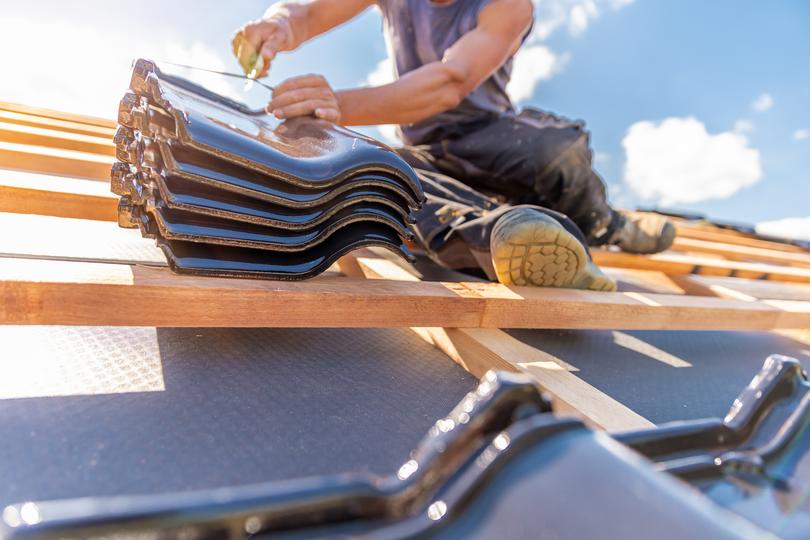
24/7 emergency roof repair services for urgent situations. We respond quickly to storm damage, leaks, and other roofing emergencies to protect your property.
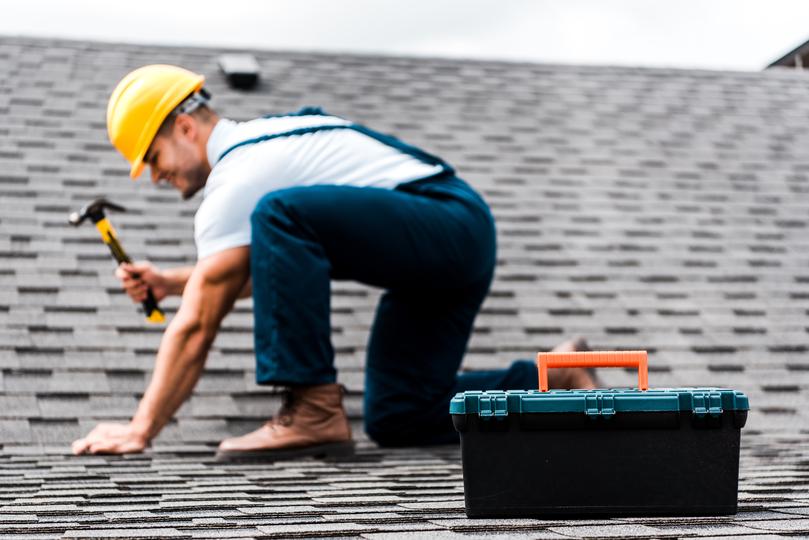
Fast and reliable roof leak repair services. We identify and fix the source of leaks to protect your property from water damage.
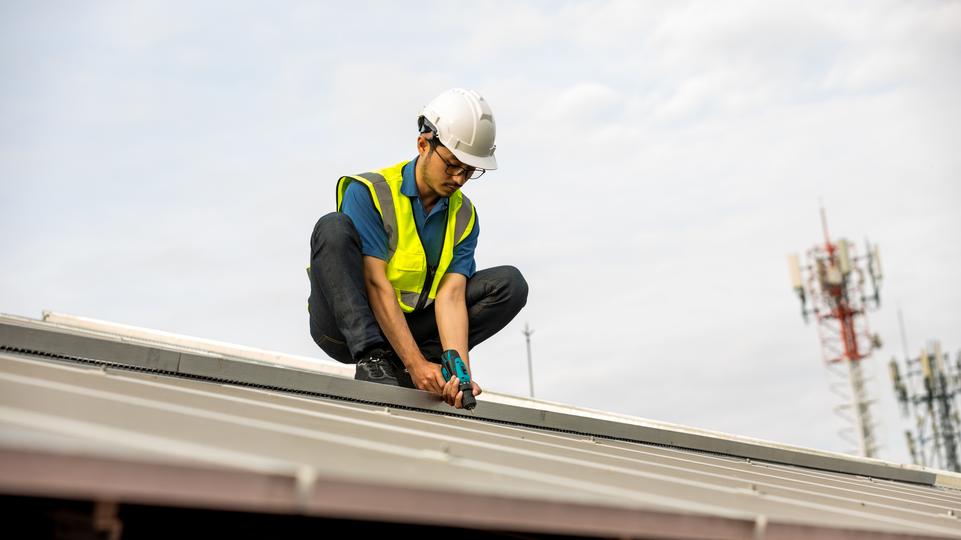
Durable and stylish steel roof installation services. We offer a variety of metal roofing options, including standing seam and corrugated metal.

Expert flat roof installation and repair services. We work with a variety of flat roofing systems, including TPO, EPDM, and modified bitumen.
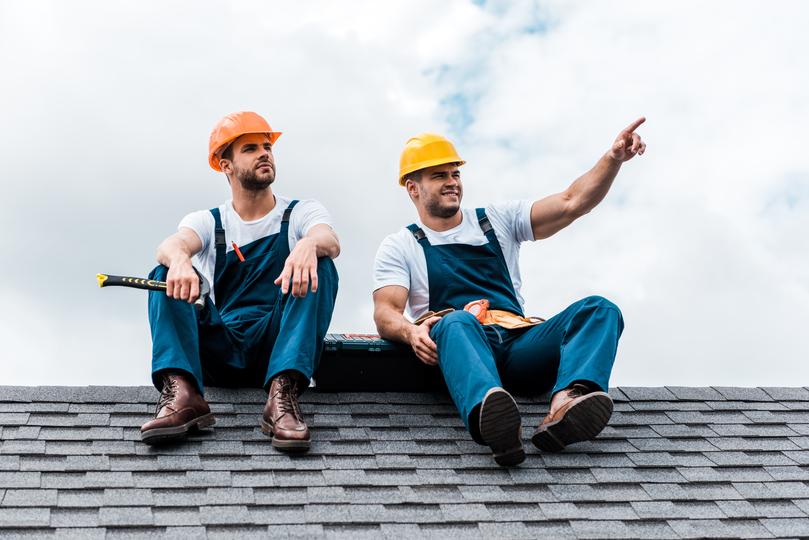
Sustainable and eco-friendly green roof installation and maintenance. We create beautiful living roofs that benefit the environment and your property.
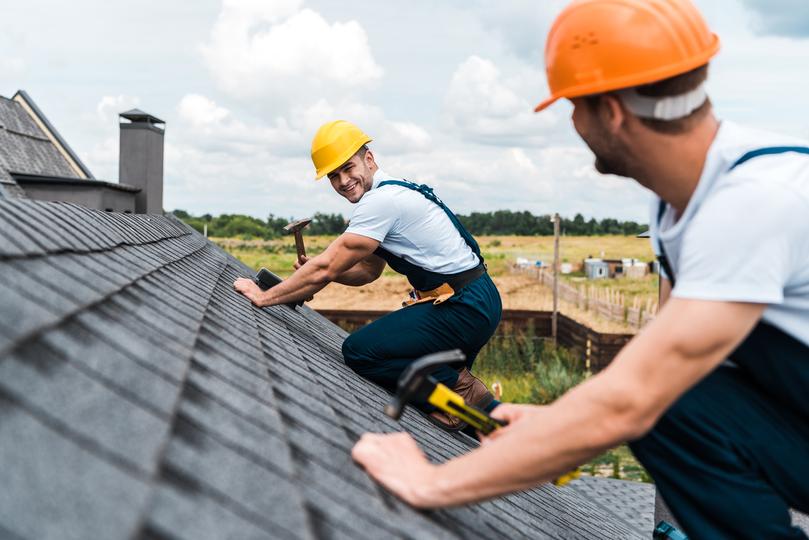
Specialized roofing companies experienced in hail damage repair and replacement. We work with insurance companies to get your roof restored after a hailstorm.
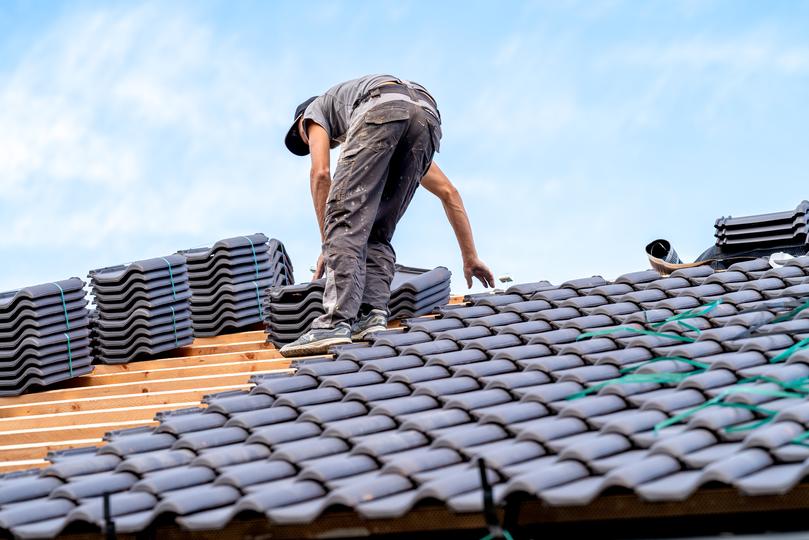
Professional metal roof repair services for residential and commercial properties. We fix leaks, dents, rust, and other metal roof issues.
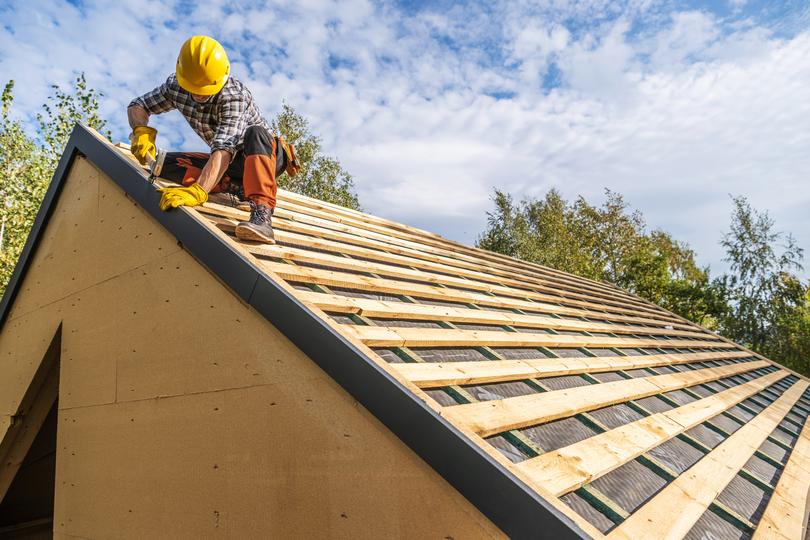
Certified roof inspectors provide thorough roof inspections for insurance claims, pre-purchase evaluations, and maintenance assessments.

Long-lasting and energy-efficient metal roof replacement services. We install durable steel or metal roofs that enhance your property's value and curb appeal.
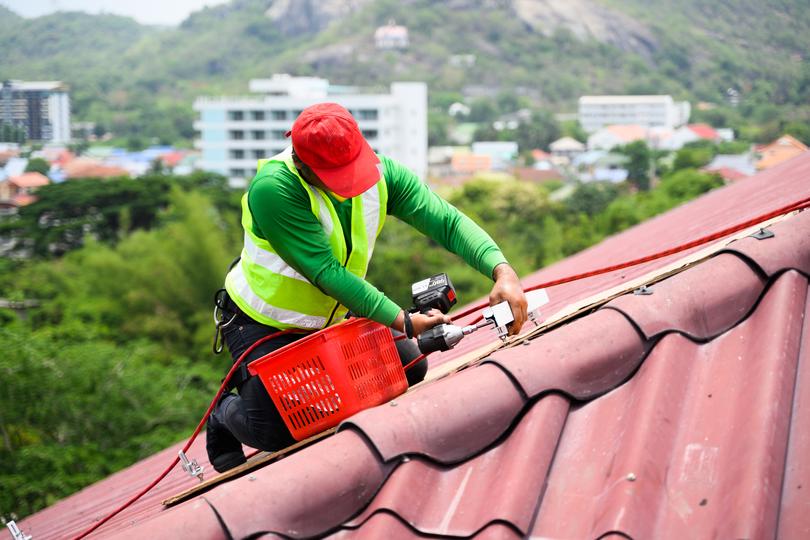
Professional roof flashing repair to prevent leaks and water damage. We repair and seal flashing around chimneys, skylights, vents, and other roof penetrations.

Professional roof waterproofing services to protect your property from leaks and water damage. We apply high-quality sealants, membranes, and coatings to ensure
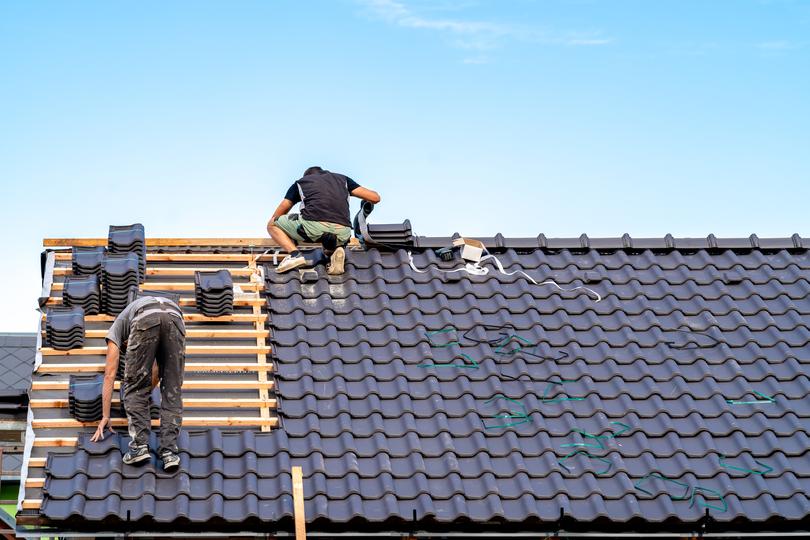
Durable and long-lasting rubber roof (EPDM) installation and repair services. Ideal for flat or low-slope roofs on residential and commercial buildings.

Expert TPO roofing services for flat and low-slope roofs. We offer high-quality TPO roof installation, repair, and maintenance for residential and commercial pro

Specialized roofing contractors for industrial facilities. We handle large-scale roof installations, repairs, and replacements for factories, warehouses, and oth

Reliable flat roof replacement services for residential and commercial properties. We specialize in installing durable and weather-resistant flat roofing systems
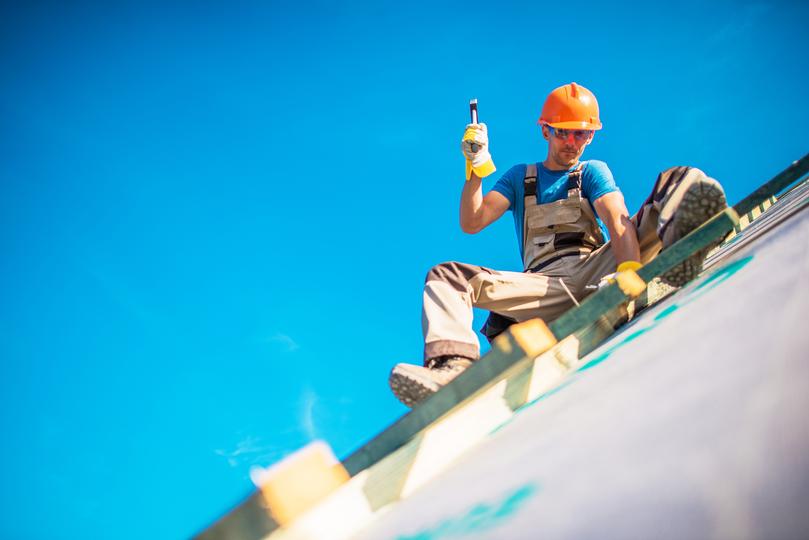
24/7 emergency roof tarping services to protect your property from further damage. We provide temporary roof covers after storms or other incidents.

Improve your home's energy efficiency and comfort with our roof insulation services. We install and replace attic insulation to reduce energy costs and keep your
domesticServices.subTitle
domesticServices.title
domesticServices.description

Find trusted roofing companies near you. Get multiple quotes for roof installation, repair, and replacement services.

Get a new roof installed by experienced professionals. We offer a variety of roofing materials and styles to suit your needs and budget.

Comprehensive roof repair services for all types of roofs. We fix leaks, damage, and other roofing issues to keep your property protected.

Complete roof replacement services for residential and commercial buildings. We remove your old roof and install a new roof with the material of your choice.

Expert shingle roofers for your home. We specialize in asphalt shingle installation, repair, and replacement, offering a range of shingle types and colors.

24/7 emergency roof repair services for urgent situations. We respond quickly to storm damage, leaks, and other roofing emergencies to protect your property.

Fast and reliable roof leak repair services. We identify and fix the source of leaks to protect your property from water damage.

Expert tile roofing services for your home. We specialize in the installation, repair, and replacement of tile roofs, offering a variety of styles and colors.

Durable and stylish steel roof installation services. We offer a variety of metal roofing options, including standing seam and corrugated metal.

Expert shingle roof repair services for your home. We fix leaks, damaged or missing shingles, and other common shingle roofing problems.
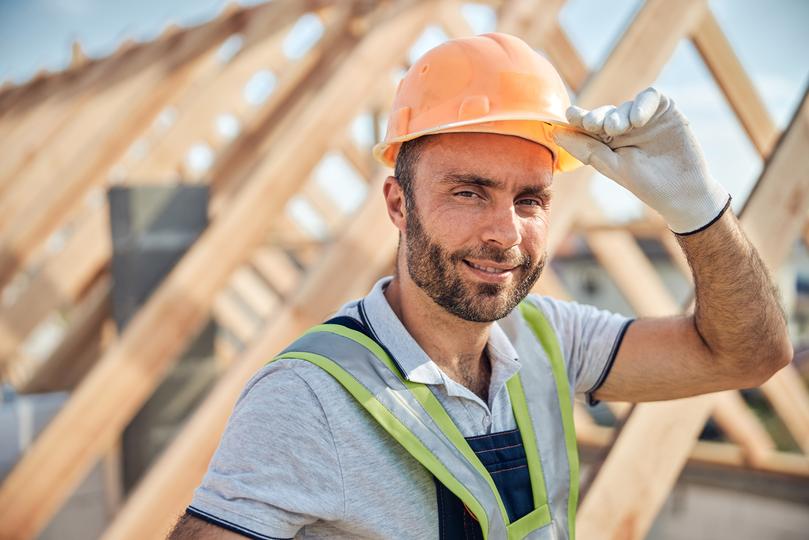
Affordable and efficient shingle roof replacement services. We remove your old shingles and install a new, durable asphalt shingle roof.

Expert flat roof installation and repair services. We work with a variety of flat roofing systems, including TPO, EPDM, and modified bitumen.

Sustainable and eco-friendly green roof installation and maintenance. We create beautiful living roofs that benefit the environment and your property.

Specialized roofing companies experienced in hail damage repair and replacement. We work with insurance companies to get your roof restored after a hailstorm.

Professional metal roof repair services for residential and commercial properties. We fix leaks, dents, rust, and other metal roof issues.

Certified roof inspectors provide thorough roof inspections for insurance claims, pre-purchase evaluations, and maintenance assessments.

Long-lasting and energy-efficient metal roof replacement services. We install durable steel or metal roofs that enhance your property's value and curb appeal.

Professional roof flashing repair to prevent leaks and water damage. We repair and seal flashing around chimneys, skylights, vents, and other roof penetrations.

Professional roof waterproofing services to protect your property from leaks and water damage. We apply high-quality sealants, membranes, and coatings to ensure

Durable and long-lasting rubber roof (EPDM) installation and repair services. Ideal for flat or low-slope roofs on residential and commercial buildings.

Expert TPO roofing services for flat and low-slope roofs. We offer high-quality TPO roof installation, repair, and maintenance for residential and commercial pro

Specialized tile roof repair services. We fix leaks, replace cracked or broken tiles, and provide other tile roof maintenance to keep your roof in excellent cond
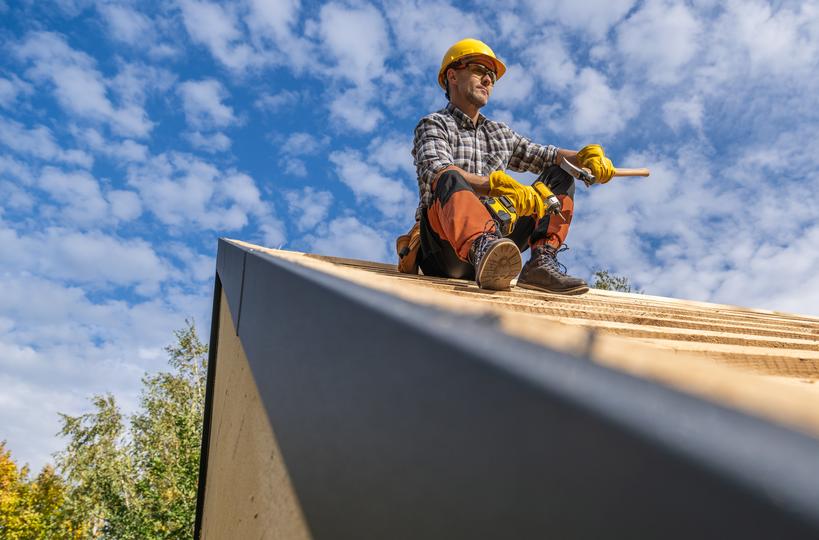
Beautiful and durable tile roof replacement services. We install high-quality clay or concrete tile roofs, offering a classic and elegant look for your home.

Reliable flat roof replacement services for residential and commercial properties. We specialize in installing durable and weather-resistant flat roofing systems

24/7 emergency roof tarping services to protect your property from further damage. We provide temporary roof covers after storms or other incidents.

Expert chimney flashing repair services to prevent leaks and water damage. We ensure your chimney is properly sealed to protect your home.

Improve your home's energy efficiency and comfort with our roof insulation services. We install and replace attic insulation to reduce energy costs and keep your

Beautiful and durable cedar shake roofing services. We specialize in cedar shake installation, repair, and replacement, providing a classic and elegant look for
Ready to Start Your Industrial Roofing Project?
Find The Best Industrial Roofing Contractors on Roofyng.co.uk!
Get free quotes, compare services, and find a qualified, trustworthy contractor for your needs.
Industrial Roofing Glossary
Built-Up Roofing (BUR)
Modified Bitumen Roofing
Single-Ply Membrane Roofing
EPDM Rubber Roofing
TPO Roofing
PVC Roofing
Metal Roofing
Standing Seam Metal Roofing
Spray Polyurethane Foam (SPF) Roofing
Roof Curb
Roof Hatch
Roof Drain
Tapered Insulation System
Roof Maintenance
Roof Warranty
Industrial Roofing FAQs
What is industrial roofing?
What are the different types of industrial roofing systems?
- Built-Up Roofing (BUR): A traditional, multi-layered system using asphalt-saturated felt or fiberglass, interlaid with hot asphalt, and topped with gravel or aggregate. Known for its durability, waterproofing, and affordability.
- Modified Bitumen Roofing: A single-ply system using asphalt-based sheets modified with polymers for enhanced flexibility and weather resistance. Offers good durability, flexibility, and ease of installation.
- Single-Ply Membrane Roofing: A modern system using a single layer of waterproof membrane, typically EPDM, TPO, or PVC. Favored for flexibility, ease of installation, and energy efficiency.
- Metal Roofing: Durable, long-lasting, and fire-resistant. Comes in styles like standing seam, corrugated, and metal shingles.
- Spray Polyurethane Foam (SPF) Roofing: A spray-applied, seamless system providing excellent insulation, waterproofing, and energy efficiency.
How much does an industrial roof cost?
How long does an industrial roof last?
Here are average lifespan estimations for common industrial roofing types:
- Built-Up Roofing (BUR): 15-20 years
- Modified Bitumen Roofing: 15-25 years
- Single-Ply Membrane Roofing (EPDM, TPO, PVC): 20-35 years
- Metal Roofing: 40-70 years
- Spray Polyurethane Foam (SPF) Roofing: 15-30 years
What are the signs that my industrial roof needs to be replaced?
- Persistent Leaks: Multiple or recurring leaks, despite repairs, suggest significant issues with the roofing system.
- Extensive Damage: Large areas of damaged or deteriorated roofing material, beyond what can be reasonably repaired.
- Ponding Water: Standing water on the roof after rainfall indicates drainage problems and potential for structural damage.
- Sagging or Structural Issues: Any sagging, deflection, or signs of structural damage require immediate attention and might warrant a complete replacement.
- Age and Deterioration: If your roof is nearing the end of its expected lifespan and showing signs of widespread wear and tear, replacement is likely the best option.
What factors should I consider when choosing an industrial roofing system?
- Building Structure: The type of roof deck, slope, and structural support will influence the suitable roofing systems.
- Budget: Different roofing systems have varying costs, so set a budget and explore options within that range.
- Energy Efficiency: Consider the insulation and reflectivity of the roofing system to improve energy efficiency and reduce costs.
- Durability and Lifespan: Evaluate the expected lifespan, durability, and maintenance requirements of different roofing systems.
- Fire Resistance: Prioritize fire-resistant materials, especially in industries with fire hazards.
- Aesthetics: While functionality is paramount, consider the roof's appearance and how it complements the building's design.
- Environmental Impact: Choose sustainable and environmentally friendly options when possible, considering recycled content, energy efficiency, and the potential for future recycling.
How do I find a reputable industrial roofing contractor?
What are the benefits of hiring a professional industrial roofing contractor?
- Expertise: Knowledge of different roofing systems, materials, and techniques to ensure proper installation and long-lasting performance.
- Safety: Trained and equipped to work safely at heights, adhering to strict safety regulations to protect workers and property.
- Quality Materials: Access to high-quality, commercial-grade roofing materials that meet industry standards.
- Warranties: Offer warranties on their workmanship and materials, providing protection and peace of mind.
- Efficiency: Complete projects efficiently with minimal disruption to your business operations.
What questions should I ask a potential industrial roofing contractor?
- Experience: 'How long have you been specializing in industrial roofing, and can you share examples of similar projects you've completed?'
- Licensing and Insurance: 'Can I see your license and insurance certificates to verify your credentials and coverage?'
- Expertise: 'Are you experienced in the specific roofing system we're considering?'
- Safety Record: 'What safety protocols do you follow on job sites?'
- Project Management: 'How do you manage communication and scheduling throughout the project?'
- Warranties: 'What warranties do you offer on your work and the materials used?'
- References: 'Can you provide references from previous industrial roofing clients?'
What is the difference between commercial roofing and industrial roofing?
Commercial Roofing: Typically refers to roofing systems used on buildings like offices, retail stores, and apartment complexes. These roofs are usually less complex than industrial roofs.
Industrial Roofing: Covers larger, more complex structures like factories and warehouses, often requiring specialized materials and expertise.
The key differences lie in the scale, complexity, and specific needs of the building.
What are the benefits of a roof inspection for my industrial building?
- Identify Damage Early: Early detection allows for prompt repairs, preventing more extensive damage and costly repairs.
- Extend Roof Lifespan: Addressing minor issues extends the life of your roof, delaying the need for costly replacements.
- Prevent Safety Hazards: Identify potential safety concerns and ensure compliance with regulations, protecting workers and property.
- Maintain Business Continuity: Prevent disruptions to business operations by addressing roof issues proactively.
- Support Insurance Claims: A documented inspection report can be valuable in supporting insurance claims for storm damage or other covered events.
How often should an industrial roof be inspected?
What are the common causes of industrial roof damage?
- Weather: Severe storms, high winds, hail, heavy rain, and snow can cause significant damage to roofing materials, flashing, and gutters.
- UV Radiation: Prolonged exposure to sunlight can degrade certain roofing materials over time.
- Foot Traffic and Equipment: Heavy foot traffic, machinery, and equipment on the roof can cause wear and tear, punctures, or damage to the roofing system.
- Ponding Water: Water pooling on the roof due to poor drainage can damage the roofing materials and underlying structure.
- Lack of Maintenance: Neglecting regular maintenance can lead to the buildup of debris, clogged gutters, and other issues that contribute to roof damage.
- Chemical Exposure: Industrial processes may release chemicals or fumes that can damage certain roofing materials.
What are some tips for maintaining an industrial roof?
- Regular Inspections: Conduct inspections at least twice a year, or more frequently in harsh environments, to identify any issues early.
- Prompt Repairs: Address any damage or leaks immediately to prevent further deterioration.
- Debris Removal: Keep the roof clear of leaves, branches, and debris that can trap moisture and cause damage.
- Gutter Cleaning: Ensure gutters and downspouts are clear of debris and functioning correctly to prevent water damage.
- Coating Application: Consider applying a reflective roof coating to protect the roof surface from UV rays and extend its lifespan.
- Professional Maintenance: Hire a qualified industrial roofing contractor for regular maintenance, including inspections, cleaning, and minor repairs.
What is a roof warranty, and why is it important for industrial roofing?
- Protection Against Defects: If the roofing materials are faulty or defective, the manufacturer's warranty will cover the cost of replacement materials and labor.
- Workmanship Assurance: A contractor's warranty ensures the roofing work was performed correctly and to industry standards. If leaks or other problems arise due to faulty installation, the contractor is responsible for repairs.
- Peace of Mind: Knowing your roof is protected by a warranty gives you peace of mind and financial security, as you're covered for potential repairs or replacements during the warranty period.
What are the different types of warranties for industrial roofs?
- Manufacturer's Warranty: Provided by the manufacturer of the roofing materials, covering defects in materials. Length varies depending on the material and manufacturer.
- Contractor's Warranty: Offered by the roofing contractor, covering the quality of their workmanship. Usually covers a shorter period than the material warranty, typically 1 to 10 years.
What is a roof recover, and is it suitable for industrial roofs?
- The existing roof deck is structurally sound.
- The existing roofing system is a single layer.
- Local building codes permit roof overlays.
What is a roof tear-off, and when is it necessary for industrial roofing?
- The existing roof deck is damaged or deteriorated.
- The existing roofing system has multiple layers.
- There are significant structural issues with the roof.
- A roof overlay (recover) is not permitted by local building codes.
How do I prepare my facility for an industrial roof replacement?
- Clear the Roof: Remove any equipment, materials, or debris from the roof surface.
- Protect Interior Spaces: Cover valuable equipment, furniture, or inventory inside the building to prevent dust or debris from entering.
- Notify Tenants or Employees: Communicate the project timeline and any potential disruptions to building occupants.
- Arrange for Access and Parking: Provide clear access for the roofing crew and equipment, and designate parking areas.
- Coordinate with Other Trades: If other trades are involved (e.g., HVAC technicians), coordinate their work schedules to avoid conflicts.
- Safety Measures: Establish clear safety protocols and ensure the roofing contractor is aware of any specific safety requirements for your facility.
What are the benefits of a cool roof for my industrial building?
- Reduced Energy Costs: Lower cooling loads reduce energy consumption and operating costs for air conditioning.
- Improved Indoor Comfort: Keeps the building cooler, enhancing worker comfort and productivity.
- Extended Roof Lifespan: Reduces heat stress on roofing materials, extending their lifespan.
- Environmental Benefits: Decreased energy demand lowers greenhouse gas emissions and reduces the urban heat island effect.
What are some sustainable industrial roofing options?
- Cool Roofs: Reflective coatings or light-colored materials to reduce heat absorption.
- Green Roofs: Vegetated roofs providing insulation, reducing stormwater runoff, and improving air quality.
- Solar Panels: Integrating solar panels into the roofing system for renewable energy generation.
- Recycled Content Roofing: Using roofing materials made from recycled content, reducing landfill waste.
- Durable Roofing Systems: Choosing long-lasting systems that require less frequent replacements, minimizing resource consumption.
How do I finance a large industrial roofing project?
- Traditional Bank Loans: Secure loans from banks or financial institutions.
- SBA Loans: Government-backed loans designed for small businesses.
- Leasing: Lease the roofing system from a roofing company, spreading costs over time.
- PACE Financing (Property Assessed Clean Energy): Long-term financing for energy-efficient improvements, repaid through property taxes.
- Contractor Financing: Some roofing contractors offer financing options or payment plans.
What safety precautions should I expect from an industrial roofing contractor?
- Safety Training: Workers trained in OSHA regulations and safe roofing practices.
- Safety Equipment: Use of appropriate safety equipment, such as harnesses, ropes, and hard hats.
- Fall Protection: Implementation of fall protection systems, such as guardrails or safety nets.
- Job Site Safety Plan: Development and implementation of a comprehensive safety plan for the project.
- Regular Safety Meetings: Conducting daily or weekly safety meetings to discuss potential hazards and best practices.
What are some common industrial roofing problems?
- Leaks: Caused by damaged or poorly installed flashing, seams, or penetrations.
- Ponding Water: Water buildup due to inadequate drainage.
- Wind Damage: High winds can lift or tear roofing materials, especially on large, flat roofs.
- Punctures and Tears: Caused by foot traffic, equipment, or falling debris.
- UV Degradation: Prolonged exposure to sunlight can degrade certain roofing materials.
- Seam Separation: Seams in roofing systems can separate due to improper installation or thermal movement.
- Flashing Failure: Flashing can rust, corrode, or become loose, leading to leaks.
- Structural Issues: Sagging or deflection of the roof deck due to inadequate support or excessive loads.
What is industrial roofing?
What are the different types of industrial roofing systems?
- Built-Up Roofing (BUR): A traditional, multi-layered system using asphalt-saturated felt or fiberglass, interlaid with hot asphalt, and topped with gravel or aggregate. Known for its durability, waterproofing, and affordability.
- Modified Bitumen Roofing: A single-ply system using asphalt-based sheets modified with polymers for enhanced flexibility and weather resistance. Offers good durability, flexibility, and ease of installation.
- Single-Ply Membrane Roofing: A modern system using a single layer of waterproof membrane, typically EPDM, TPO, or PVC. Favored for flexibility, ease of installation, and energy efficiency.
- Metal Roofing: Durable, long-lasting, and fire-resistant. Comes in styles like standing seam, corrugated, and metal shingles.
- Spray Polyurethane Foam (SPF) Roofing: A spray-applied, seamless system providing excellent insulation, waterproofing, and energy efficiency.
How much does an industrial roof cost?
How long does an industrial roof last?
Here are average lifespan estimations for common industrial roofing types:
- Built-Up Roofing (BUR): 15-20 years
- Modified Bitumen Roofing: 15-25 years
- Single-Ply Membrane Roofing (EPDM, TPO, PVC): 20-35 years
- Metal Roofing: 40-70 years
- Spray Polyurethane Foam (SPF) Roofing: 15-30 years
What are the signs that my industrial roof needs to be replaced?
- Persistent Leaks: Multiple or recurring leaks, despite repairs, suggest significant issues with the roofing system.
- Extensive Damage: Large areas of damaged or deteriorated roofing material, beyond what can be reasonably repaired.
- Ponding Water: Standing water on the roof after rainfall indicates drainage problems and potential for structural damage.
- Sagging or Structural Issues: Any sagging, deflection, or signs of structural damage require immediate attention and might warrant a complete replacement.
- Age and Deterioration: If your roof is nearing the end of its expected lifespan and showing signs of widespread wear and tear, replacement is likely the best option.
What factors should I consider when choosing an industrial roofing system?
- Building Structure: The type of roof deck, slope, and structural support will influence the suitable roofing systems.
- Budget: Different roofing systems have varying costs, so set a budget and explore options within that range.
- Energy Efficiency: Consider the insulation and reflectivity of the roofing system to improve energy efficiency and reduce costs.
- Durability and Lifespan: Evaluate the expected lifespan, durability, and maintenance requirements of different roofing systems.
- Fire Resistance: Prioritize fire-resistant materials, especially in industries with fire hazards.
- Aesthetics: While functionality is paramount, consider the roof's appearance and how it complements the building's design.
- Environmental Impact: Choose sustainable and environmentally friendly options when possible, considering recycled content, energy efficiency, and the potential for future recycling.
How do I find a reputable industrial roofing contractor?
What are the benefits of hiring a professional industrial roofing contractor?
- Expertise: Knowledge of different roofing systems, materials, and techniques to ensure proper installation and long-lasting performance.
- Safety: Trained and equipped to work safely at heights, adhering to strict safety regulations to protect workers and property.
- Quality Materials: Access to high-quality, commercial-grade roofing materials that meet industry standards.
- Warranties: Offer warranties on their workmanship and materials, providing protection and peace of mind.
- Efficiency: Complete projects efficiently with minimal disruption to your business operations.
What questions should I ask a potential industrial roofing contractor?
- Experience: 'How long have you been specializing in industrial roofing, and can you share examples of similar projects you've completed?'
- Licensing and Insurance: 'Can I see your license and insurance certificates to verify your credentials and coverage?'
- Expertise: 'Are you experienced in the specific roofing system we're considering?'
- Safety Record: 'What safety protocols do you follow on job sites?'
- Project Management: 'How do you manage communication and scheduling throughout the project?'
- Warranties: 'What warranties do you offer on your work and the materials used?'
- References: 'Can you provide references from previous industrial roofing clients?'
What is the difference between commercial roofing and industrial roofing?
Commercial Roofing: Typically refers to roofing systems used on buildings like offices, retail stores, and apartment complexes. These roofs are usually less complex than industrial roofs.
Industrial Roofing: Covers larger, more complex structures like factories and warehouses, often requiring specialized materials and expertise.
The key differences lie in the scale, complexity, and specific needs of the building.
What are the benefits of a roof inspection for my industrial building?
- Identify Damage Early: Early detection allows for prompt repairs, preventing more extensive damage and costly repairs.
- Extend Roof Lifespan: Addressing minor issues extends the life of your roof, delaying the need for costly replacements.
- Prevent Safety Hazards: Identify potential safety concerns and ensure compliance with regulations, protecting workers and property.
- Maintain Business Continuity: Prevent disruptions to business operations by addressing roof issues proactively.
- Support Insurance Claims: A documented inspection report can be valuable in supporting insurance claims for storm damage or other covered events.
How often should an industrial roof be inspected?
What are the common causes of industrial roof damage?
- Weather: Severe storms, high winds, hail, heavy rain, and snow can cause significant damage to roofing materials, flashing, and gutters.
- UV Radiation: Prolonged exposure to sunlight can degrade certain roofing materials over time.
- Foot Traffic and Equipment: Heavy foot traffic, machinery, and equipment on the roof can cause wear and tear, punctures, or damage to the roofing system.
- Ponding Water: Water pooling on the roof due to poor drainage can damage the roofing materials and underlying structure.
- Lack of Maintenance: Neglecting regular maintenance can lead to the buildup of debris, clogged gutters, and other issues that contribute to roof damage.
- Chemical Exposure: Industrial processes may release chemicals or fumes that can damage certain roofing materials.
What are some tips for maintaining an industrial roof?
- Regular Inspections: Conduct inspections at least twice a year, or more frequently in harsh environments, to identify any issues early.
- Prompt Repairs: Address any damage or leaks immediately to prevent further deterioration.
- Debris Removal: Keep the roof clear of leaves, branches, and debris that can trap moisture and cause damage.
- Gutter Cleaning: Ensure gutters and downspouts are clear of debris and functioning correctly to prevent water damage.
- Coating Application: Consider applying a reflective roof coating to protect the roof surface from UV rays and extend its lifespan.
- Professional Maintenance: Hire a qualified industrial roofing contractor for regular maintenance, including inspections, cleaning, and minor repairs.
What is a roof warranty, and why is it important for industrial roofing?
- Protection Against Defects: If the roofing materials are faulty or defective, the manufacturer's warranty will cover the cost of replacement materials and labor.
- Workmanship Assurance: A contractor's warranty ensures the roofing work was performed correctly and to industry standards. If leaks or other problems arise due to faulty installation, the contractor is responsible for repairs.
- Peace of Mind: Knowing your roof is protected by a warranty gives you peace of mind and financial security, as you're covered for potential repairs or replacements during the warranty period.
What are the different types of warranties for industrial roofs?
- Manufacturer's Warranty: Provided by the manufacturer of the roofing materials, covering defects in materials. Length varies depending on the material and manufacturer.
- Contractor's Warranty: Offered by the roofing contractor, covering the quality of their workmanship. Usually covers a shorter period than the material warranty, typically 1 to 10 years.
What is a roof recover, and is it suitable for industrial roofs?
- The existing roof deck is structurally sound.
- The existing roofing system is a single layer.
- Local building codes permit roof overlays.
What is a roof tear-off, and when is it necessary for industrial roofing?
- The existing roof deck is damaged or deteriorated.
- The existing roofing system has multiple layers.
- There are significant structural issues with the roof.
- A roof overlay (recover) is not permitted by local building codes.
How do I prepare my facility for an industrial roof replacement?
- Clear the Roof: Remove any equipment, materials, or debris from the roof surface.
- Protect Interior Spaces: Cover valuable equipment, furniture, or inventory inside the building to prevent dust or debris from entering.
- Notify Tenants or Employees: Communicate the project timeline and any potential disruptions to building occupants.
- Arrange for Access and Parking: Provide clear access for the roofing crew and equipment, and designate parking areas.
- Coordinate with Other Trades: If other trades are involved (e.g., HVAC technicians), coordinate their work schedules to avoid conflicts.
- Safety Measures: Establish clear safety protocols and ensure the roofing contractor is aware of any specific safety requirements for your facility.
What are the benefits of a cool roof for my industrial building?
- Reduced Energy Costs: Lower cooling loads reduce energy consumption and operating costs for air conditioning.
- Improved Indoor Comfort: Keeps the building cooler, enhancing worker comfort and productivity.
- Extended Roof Lifespan: Reduces heat stress on roofing materials, extending their lifespan.
- Environmental Benefits: Decreased energy demand lowers greenhouse gas emissions and reduces the urban heat island effect.
What are some sustainable industrial roofing options?
- Cool Roofs: Reflective coatings or light-colored materials to reduce heat absorption.
- Green Roofs: Vegetated roofs providing insulation, reducing stormwater runoff, and improving air quality.
- Solar Panels: Integrating solar panels into the roofing system for renewable energy generation.
- Recycled Content Roofing: Using roofing materials made from recycled content, reducing landfill waste.
- Durable Roofing Systems: Choosing long-lasting systems that require less frequent replacements, minimizing resource consumption.
How do I finance a large industrial roofing project?
- Traditional Bank Loans: Secure loans from banks or financial institutions.
- SBA Loans: Government-backed loans designed for small businesses.
- Leasing: Lease the roofing system from a roofing company, spreading costs over time.
- PACE Financing (Property Assessed Clean Energy): Long-term financing for energy-efficient improvements, repaid through property taxes.
- Contractor Financing: Some roofing contractors offer financing options or payment plans.
What safety precautions should I expect from an industrial roofing contractor?
- Safety Training: Workers trained in OSHA regulations and safe roofing practices.
- Safety Equipment: Use of appropriate safety equipment, such as harnesses, ropes, and hard hats.
- Fall Protection: Implementation of fall protection systems, such as guardrails or safety nets.
- Job Site Safety Plan: Development and implementation of a comprehensive safety plan for the project.
- Regular Safety Meetings: Conducting daily or weekly safety meetings to discuss potential hazards and best practices.
What are some common industrial roofing problems?
- Leaks: Caused by damaged or poorly installed flashing, seams, or penetrations.
- Ponding Water: Water buildup due to inadequate drainage.
- Wind Damage: High winds can lift or tear roofing materials, especially on large, flat roofs.
- Punctures and Tears: Caused by foot traffic, equipment, or falling debris.
- UV Degradation: Prolonged exposure to sunlight can degrade certain roofing materials.
- Seam Separation: Seams in roofing systems can separate due to improper installation or thermal movement.
- Flashing Failure: Flashing can rust, corrode, or become loose, leading to leaks.
- Structural Issues: Sagging or deflection of the roof deck due to inadequate support or excessive loads.